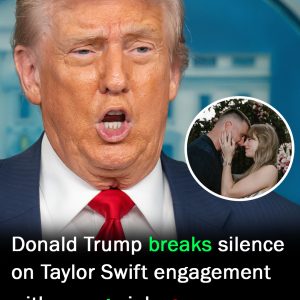Jamal Roberts, the newly crowned American Idol champion, has sent shockwaves through both the entertainment and tech industries by turning down a multi-million dollar offer from Elon Musk’s Tesla.
The deal, which reportedly involved Roberts wearing a Tesla-branded T-shirt in the opening scene of his debut music video set for release in July, would have aligned him with one of the most influential tech brands in the world. But Roberts’ reason for rejecting it has ignited a powerful cultural moment.
The 27-year-old Mississippi native became a national sensation during American Idol’s 23rd season, with audiences captivated by his emotional performances and his journey as a father of three and a beloved P.E. coach. His victory was a deeply human story of perseverance, humility, and talent. However, just days after taking the crown, Roberts was faced with a decision that could have instantly transformed his financial future.
According to insiders, Tesla’s offer was framed as a groundbreaking crossover between tech innovation and emerging pop stardom.
Media experts likened it to Beyoncé’s historic Pepsi deal—except this time, the opportunity was being handed to a brand-new artist. Analysts speculated that such an endorsement would have catapulted Roberts to new levels of visibility, possibly securing his place not just in music, but as a major commercial figure.
But Roberts declined—and not quietly. Those close to the situation say he insisted on personally delivering his answer to Musk and the production team, delivering a message that left the room in stunned silence. He reportedly spoke about authenticity, his commitment to his roots, and his responsibility to be a role model, not a product.
“I want my first message to the world to be about who I am and what I stand for,” Roberts is said to have told the room. “I grew up believing that music can heal, unite, and inspire. I’m grateful for every opportunity, but I need my first step to be true to myself—and to the people who believed in me when I had nothing.”
Those present said Elon Musk himself was “speechless” in the face of Roberts’ conviction. Though Musk has not commented publicly, Tesla insiders said the billionaire respected Roberts’ decision, calling it one of the most powerful examples of personal integrity they’d seen from a rising star.
Reactions from fans and fellow artists were immediate and passionate. Social media lit up with support, with users praising Roberts as “a rare voice of authenticity” and “the kind of role model the industry desperately needs.” Some critics, however, questioned the wisdom of turning down such a high-profile deal, warning that the entertainment spotlight can be fleeting.
Still, Roberts’ past actions lend credibility to his stance. Long before the Tesla offer, he was known for prioritizing community and principle—whether volunteering at his local school, mentoring students, or spending time with his daughters. His decision wasn’t a pivot; it was a continuation of the values he’s always lived by.
Industry veterans have described the moment as a potential turning point for celebrity culture. Instead of immediately monetizing his fame, Roberts is choosing to invest in meaning. Pop culture analyst Dr. Rachel Kim described the moment as “a necessary reset,” saying, “Jamal’s choice challenges the assumption that success must be sold to be real.”
The conversation has also expanded into broader cultural territory, raising questions about the role of tech in entertainment, and whether true artistic voices can still thrive in an age dominated by branding and profit.
As Roberts prepares to release his debut music video this July, the stakes have never been higher. But instead of being defined by a logo or a sponsorship, his story continues to be shaped by character, sincerity, and vision. During a recent assembly at Crestwood Elementary in Meridian, Roberts addressed the students who’ve followed his journey from the very beginning.
“Don’t ever let anyone tell you who you should be,” he told them. “Your dreams are yours. Protect them. Honor them. And when you finally get your shot, make sure the world sees the real you.”
Roberts may have won American Idol, but in standing firm against the pressures of instant commercial success, he’s done something far more difficult—and arguably far more important. He’s shown that fame doesn’t have to come at the expense of integrity, and that the real power of a platform lies in how you use it.





